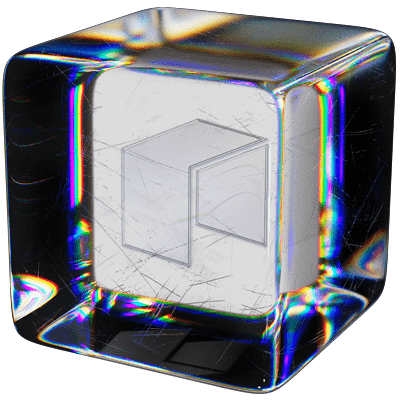
NEO
You can safely stake your NEO
by following the external link to the resource
NEO
EVERSTAKE validator address
Delegating step-by-step
Why vote for Everstake?
- Everstake stands out as a premier staking service provider, trusted by over 735,000 users across 70+ blockchain networks. Our extensive involvement spans numerous crypto projects, actively nurturing the health of the ecosystems we support. Along our journey, we've maintained an exceptional track record in preventing slashing incidents, ensuring uptime, and delivering top-notch performance.
- Our proficient team oversees robust infrastructure, placing utmost importance on the security of your assets. Delegating through Everstake opens avenues to enhance your yields while providing assurance regarding your token's safety.
How can I vote for Everstake?
- Step 1: Connect your Neo N3 wallet on the Governance page.
- Step 2: Find and select Everstake among the Neo Council members. Everstake public key 035d574cc6a904e82dfd82d7f6fc9c2ca042d4410a4910ecc8c07a07db49dc6513
- Step 3: Click the "Vote" button on the right.
Where to vote for Everstake?
Staking details
- First reward info: Immediately
- Min amount to stake: No limitations
- Network fee per byte: 0.000001 NEO
- Everstake fee: 0%
- Unstaking period: No
Blockchain overview
Neo is an open-source community-driven blockchain platform. Neo was one of the first blockchains to support smart contracts. The Neo Smart Economy is aiming to automate the management of digital assets through the use of smart contracts, with the eventual aim of building a distributed network-based smart economy system.
NEO was founded as AntShares by Da Hongfei and Erik Zhang in 2014. It was rebranded to NEO in June 2017. Later, the Neo N3 version was launched on August 2nd, 2021.
The new Neo N3 blockchain features powerful native infrastructures such as decentralized storage, oracles, and a domain name service, making it one of the most attractive ecosystems for dApp developers as well as creating a solid foundation for the Next-Gen Internet. It brings many fundamental upgrades from Neo Legacy, including a revamped governance system, an all-new architecture, and an improved economic model.
Neo Legacy is the previous version of the Neo blockchain, 2.x. As many of the new N3 features are incompatible with 2.x, the team decided to launch N3 on a new chain from a new genesis block. This means that there are two versions of the Neo blockchain running concurrently. In order to give people plenty of time to migrate to N3, the existing 2.x chain is on long-term support.
faq
What are the differences between the Legacy Neo and the Neo N3?
+Neo developers have improved the protocol to version N3, expanding the platform functionality, improving the economic model, and adding highly modular architecture for creating DApp applications.
The nature of the new improvements makes them incompatible with the previous version of the Neo Legacy protocol, so for transactions to work correctly, users need to transfer NEO and GAS tokens from the legacy protocol to Neo N3.
Learn more about the Neo N3 and its features.
Can I migrate tokens back to NEO Legacy from NEO N3?
+No. NEO N3 tokens cannot migrate to NEO Legacy.
What is GAS?
+GAS is a token used for paying network fees, smart contract deployments, and in-dApp purchases.
Unlike indivisible NEO tokens, GAS is divisible into the minimum units of 0.00000001 GAS. GAS tokens can be received by simply holding NEO tokens and voting for Neo Council members.
Is there a finite supply of NEO and GAS?
+With a fixed supply of 100M and no divisibility, NEO is one of the most scarce crypto assets. GAS supply fluctuates as GAS tokens are created and burned. 5 GAS tokens are generated every block and distributed to NEO holders, successful voters, and members of the Neo Council. System fees are burned, while network fees are redistributed to consensus nodes, creating an economic incentive for their services.
What is Neo voting?
+NEO token holders decide who makes decisions for the Neo network and do so by participating in governance.
Each NEO token represents one vote in the election of the Neo Council and consensus nodes that maintain the liveliness of the Neo network and adjust critical blockchain parameters.
NEO holders should vote for candidates they feel will represent their needs and are capable of maintaining the health of the Neo network.
NEO holders also receive a passive distribution of the network utility token, GAS - No staking required. GAS rewards increase for voting participation (i.e. the more NEO you hold when voting, the bigger GAS reward you will receive).
Why should I vote?
+By participating, you receive GAS tokens and contribute to Neo's decentralization and growth.
For example:
- If you hold 1000 Neo and don’t vote, you will receive only ~0.04 GAS per day.
- However, If you hold 1000 Neo and vote for Everstake, you will receive roughly ~1.64 Gas per day.
Do I need to spend my Neo tokens in order to vote?
+The voting process doesn't require spending your NEO tokens. Only a small GAS fee is required to perform the transaction. Your NEO tokens will stay in your wallet.
What is APR and APY?
+APR stands for Annual Percentage Rate. This is the percent that you will receive when staking with a validator. APR should not be treated as constant as it is influenced by a number of factors: the number of nodes, service fee, top-up amount of the pool and of the network, uptime rank. Remember that the more users start staking, the less APR in the network. You may find an actual APR in the explorers mentioned above.
APY stands for Annual Percentage Yield and is the projected rate of annual return after taking compounding interest into account. In order to understand how APY is calculated, it is important to understand compound interest. In essence, compound interest is interest earned on previously earned interest.
How Everstake deduces validator fee?
+“Validator fee” refers to the rewards received by Validator for participating in the Blockchain network Validation process. Everstake determines the validator fee through a process involving analysis and consideration of various factors, such as network requirements, operational costs, and market dynamics.
Control over user's funds
+Validators don't have control over users' funds in blockchain networks. Instead, they validate transactions and participate in the consensus process based on the rules defined by the network protocol. Users retain control over their funds through private keys, which are used to sign transactions and authorize transfers. Validators' roles involve confirming the validity of transactions and blocks, but they don't have the authority to access or manipulate users' funds.
